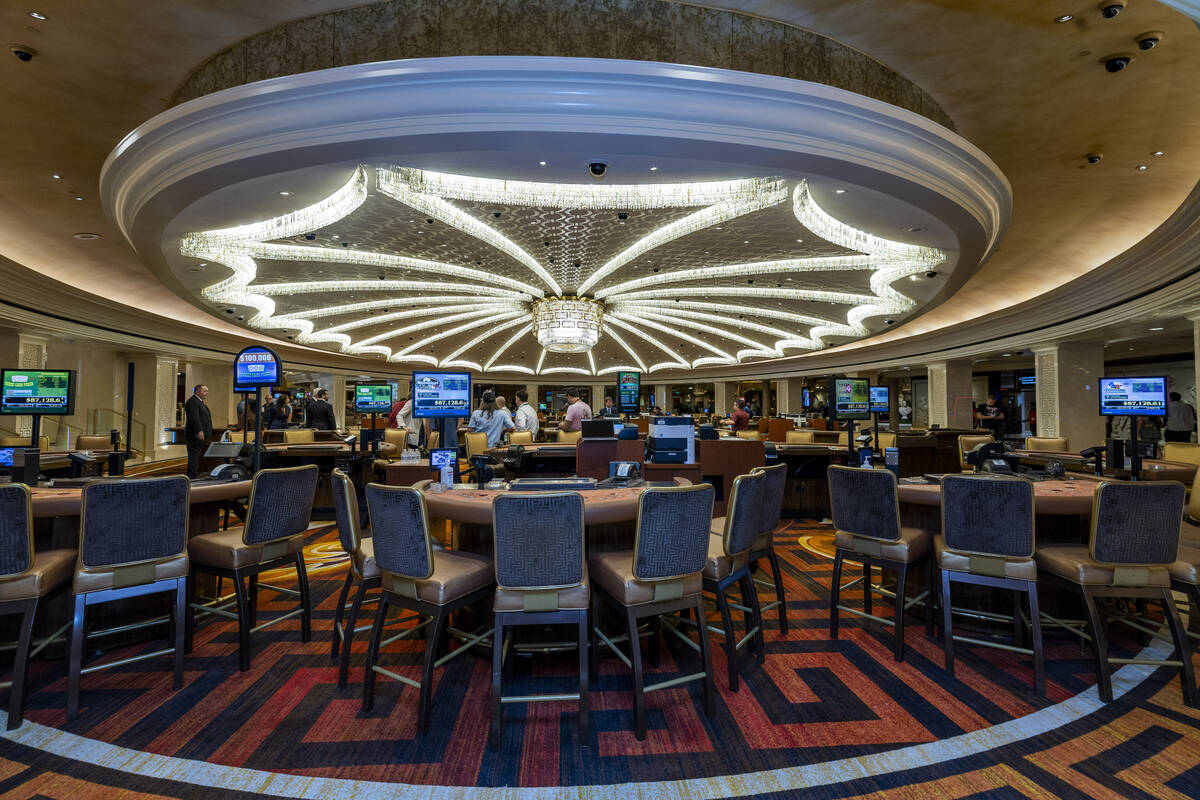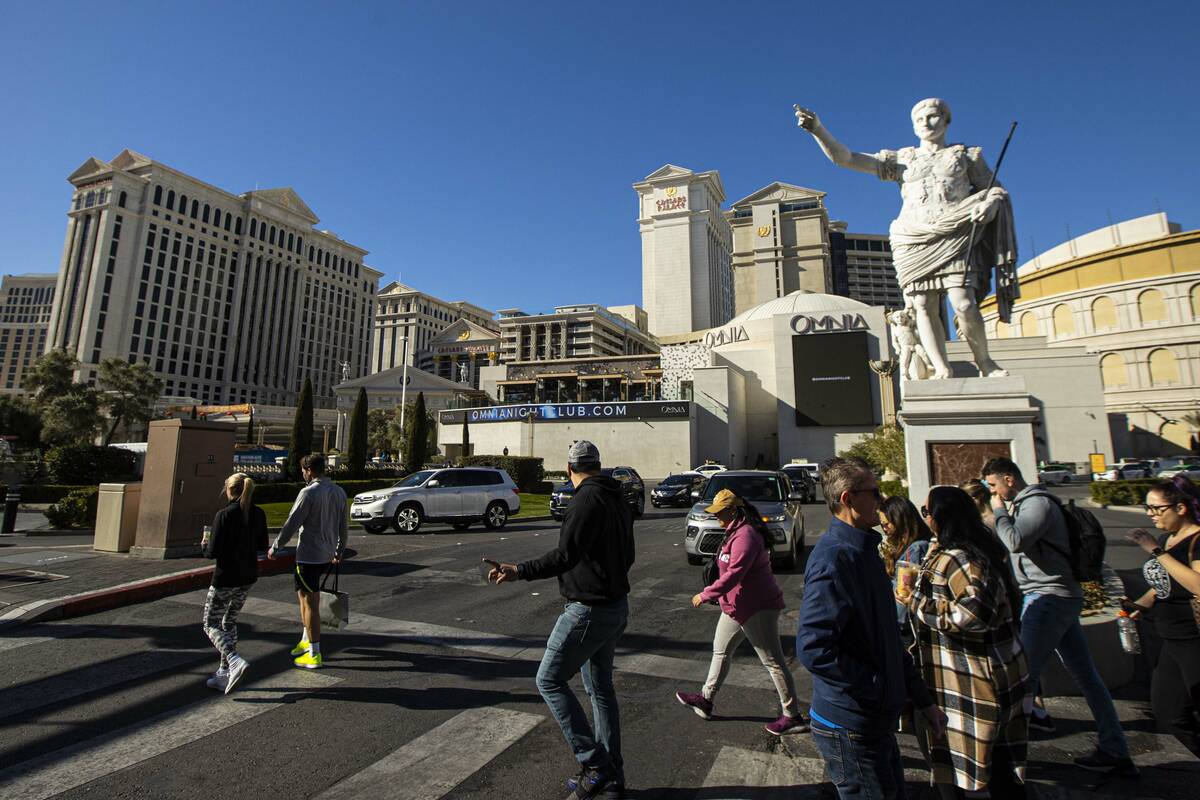21 and over: Caesars reveals new gaming restrictions
Caesars Entertainment announced plans to bolster its responsible gaming policies by raising the age restriction for Caesars Rewards and expanding its self-exclusion program — a launch that is taking place during Problem Gambling Awareness Month.
The Reno-based operator of some of the Strip’s biggest properties said last week that it will implement its self-exclusion program across its entire gaming portfolio by the end of March. It will also limit Caesars Rewards accounts to customers over 21, and, where allowed by law, limit all domestic gaming, parimutuel, sports and iGaming options to those over 21.
Self-exclusion programs are used to help treat gambling addictions by having the individual request a casino bar them from gambling, and often removing them from loyalty programs and marketing lists, according to Keith Whyte, executive director of the National Council on Problem Gambling. Terms can vary but are often between one to five years, with some programs offering a lifetime exclusion.
Anyone on a state-sponsored self-exclusion list in which Caesars operates will be added to its universal list for all of Caesars’ gaming facilities and platforms such as the Caesars Sportsbook app, which will exclude them from mobile and in-person betting. A person can also add themselves to the list.
Caesars began looking at how to expand the universal self-exclusion policy to digital and brick-and-mortar businesses when it acquired William Hill in 2021.
“It’s been something we’ve been working on for some time, and we wanted to launch our universal self-exclusion program as soon as it was ready,” Caesars spokeswoman Kate Whiteley said in an emailed statement. “It’s serendipitous that it happened to align with the end of Problem Gambling Awareness Month, but we are glad to have the opportunity to talk about it as the industry focuses on the crucial topic of Responsible Gaming.”
Experts say the step is a welcome one.
“This is something that responsible gambling/public health advocates have been suggesting for a long time, and it’s an incredibly helpful change to the self-exclusion tool, which is often a big asset in problem gambling treatment settings, too,” Brett Abarbanel, executive director of UNLV’s International Gaming Institute, said in an email.
Still, the method is not without its challenges. Exclusion is voluntary and most states require that person — not a loved one — to be the one who signs up.
And enforcement can be difficult since most casinos do not have controlled access to the gaming floor, Whyte said. Instead, excluded gamblers are usually caught if they win a jackpot and have to show ID, or if the casino uses high-tech enforcement tools like facial recognition.
Whiteley said Caesars’ enforcement practices are similar in that some tools can identify excluded gamblers while others are spotted when they win a jackpot or other payout.
It’s unknown how many people in the United States participate in such programs annually because it’s a mix of private and public-run lists, Whyte said.
“But the most important lesson is that self-exclusion is just one tool to help an individual address their gambling problem — ultimately the goal is to help them get help for their gambling problem through a therapist and/or a self-help group,” he said. “Self-exclusion is a means to that end, not a substitute for help.”
McKenna Ross is a corps member with Report for America, a national service program that places journalists into local newsrooms. Contact her at mross@reviewjournal.com. Follow @mckenna_ross_ on Twitter.























